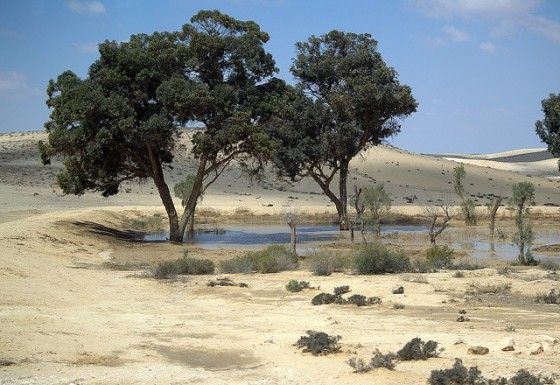JNF Seeks to Optimize Israel's Water Economy Efforts
Published on by Water Network Research, Official research team of The Water Network in Government
JNF Fund is determined to see the country reusing nearly all of its sewage in the years to come as its population continues to expand from North to South.

“For decades, JNF has been involved in the water economy of the State of Israel,” Talia Tzour Avner, JNF’s chief Israel emissary, told The Jerusalem Post.
“Our long-term intention is to grow the recycled water in Israel from 85% to 95%."
Israelis have been innovating solutions to the country’s water scarce conditions since the nation’s establishment – a process in which JNF has played an integral role over the years. Ahead of the upcoming United Nations World Water Day, Tzour Avner discussed both the near and long-term visions of JNF for Israel’s wastewater treatment, river rehabilitation, water reservoir, irrigation and water education activities.
“We touch different communities and different needs and support as many people as we can in Israel with water – because water is life,” Tzour Avner said, noting that JNF’s vision is to bring 500,000 people to the South and 300,000 to the North. “We need to make sure that they have water.”
Among other water activities over the years, JNF has constructed 250 water reservoirs in Israel, built sewage treatment plants and restored many of the country’s rivers, such as the Yarkon, Kishon, Lachish, Alexander, Harod and Hadera.
One major river restoration project still under way is that of the Beersheba River and the accompanying Beersheba River Park. While JNF has already succeeded in cleaning up the river and constructing most of a planned 8-km. promenade, the organization is still at work on the rest of the park. JNF is planning to use recycled water from the city of Beersheba to fill a 23-acre lake designed for boating, bird watching and other activities.
An additional water project on the horizon for JNF in 2017 is the Arava Wastewater Treatment Plant, which will collect sewage from six kibbutzim and dairy farms in the Eilot Regional Council district just north of Eilat. The treated effluent will be pumped to JNF’s existing Elifaz Reservoir, which provides water for agricultural use to 10 area kibbutzim.
The treatment plant, according to JNF, will help stimulate the growth of a region that is isolated from the national water supply grid.
“The more water there will be, the more people will be able to do agriculture, the more crops will grow and the better the economy will be,” Tzour Avner said. “We are affecting the whole cycle of life in the Arava.”
Another project for 2017 is a water reclamation and recycling program at the Negev Beduin community of Um Batin. In the village, JNF plans to connect Beduin households to on-site wastewater treatment and reuse systems, to minimize environmental and public health risk, while providing high quality wastewater for irrigation needs.
“By recycling the water, they can use it for their own agriculture,” Tzour Avner said. “That’s another beautiful project touching another community.”
JNF is also involved in a planned water-drilling program, at Halutza – a Negev region of three communities that borders Egypt and Gaza and is not connected to the water grid. Due to the area’s isolation and the need to use expensive desalinated water for agriculture, the crops grown there have been “almost unprofitable,” Tzour Avner said.
Read more at: Jerusalem Post
Media
Taxonomy
- Water Reuse & Recycling
- Water Scarcity
- Water Access
- Technology
- Industrial Water Reuse
- Water Scarcity In Desert area
- Integrated Water Management
- Reuse
- Desalination
- Access
- Water Supply
- Integrated Infrastructure